Waste Clean

How do clean production technologies help reduce waste and pollution ?
Clean production technologies are vital in reducing waste and pollution. They achieve this through energy efficiency, resource efficiency, improved waste management, pollution control, and a holistic approach to sustainability via life cycle assessment. By implementing these technologies, industries can operate in a more sustainable manner, minimizing their environmental impact.

How can governments promote waste reduction initiatives among citizens ?
Governments can promote waste reduction initiatives among citizens through education campaigns, incentives, regulations, community involvement, research and development, and public infrastructure investments. These strategies aim to raise awareness, encourage sustainable practices, enforce compliance, engage communities, fund innovative solutions, and establish efficient waste management systems.

What are the benefits of implementing clean production technologies ?
The implementation of clean production technologies offers a multitude of benefits, including environmental improvements such as pollution reduction, resource conservation, waste minimization, and biodiversity protection. Economically, businesses can achieve cost savings, risk mitigation, market advantage, and increased efficiency. From a social perspective, there are improved public health outcomes, job creation, educational opportunities, and enhanced community engagement. Technically, the shift to cleaner production stimulates innovation, process optimization, supply chain enhancement, and compliance with regulations. Overall, adopting clean production technologies is strategic for companies, preparing them for a future where sustainability is essential.
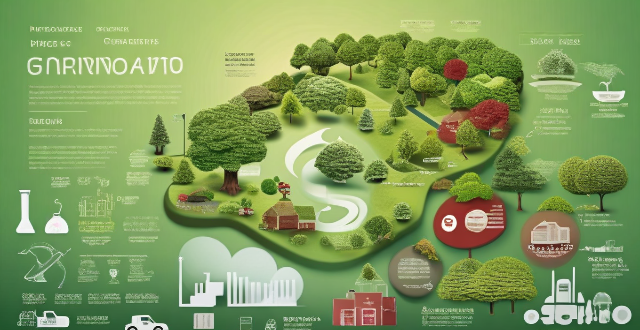
What is the impact of waste reduction on global climate change ?
This text discusses the importance of waste reduction in mitigating global climate change, highlighting how it can reduce greenhouse gas emissions, conserve natural resources, and protect ecosystems and biodiversity. It suggests ways to reduce waste such as reducing consumption, reusing items, recycling materials, composting organic waste, and supporting sustainable practices.

How can businesses contribute to reducing climate loss and damage ?
Businesses have a crucial role in mitigating climate loss and damage. Here's how they can contribute significantly: 1. **Adopting Sustainable Practices** - Reducing Energy Consumption - Waste Management - Water Conservation 2. **Investing in Clean Technology** - Research and Development - Green Infrastructure 3. **Promoting Sustainable Supply Chains** - Eco-friendly Sourcing - Partnership with Green Companies 4. **Supporting Environmental Initiatives** - Sponsoring Clean Projects - Education and Awareness 5. **Engaging in Carbon Offsetting** - Carbon Credits - Reforestation Projects 6. **Advocating for Policy Changes** - Lobbying for Green Policies - Collaborating with Governments 7. **Developing Circular Economy Models** - Zero Waste - Reusable Products

Is it possible to achieve a zero-waste lifestyle ?
The text discusses the possibility of achieving a zero-waste lifestyle, which involves minimizing the amount of waste produced in daily life. It outlines three key steps: reduce, reuse, and recycle. Reducing waste can be done by buying only what is needed, choosing products with minimal packaging, and using reusable containers. Reusing items can involve donating or selling unwanted items, as well as repurposing them. Recycling involves separating recyclable materials from non-recyclable waste and sending them to facilities where they can be processed into new products. While achieving a completely zero-waste lifestyle may not be entirely feasible, making small changes in daily habits can significantly reduce waste production.
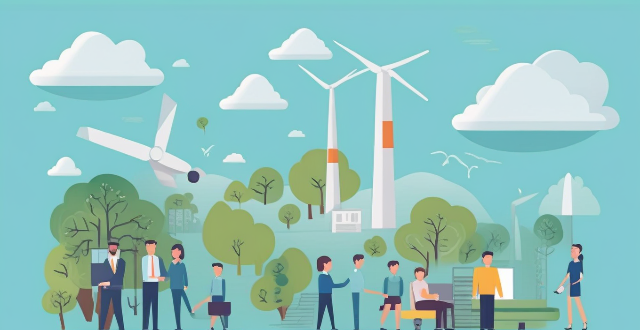
How has the Clean Energy Revolution affected the job market ?
The clean energy revolution has created new job opportunities across various sectors, including solar, wind, geothermal, hydropower, and bioenergy. The industry requires specialized skills in engineering, manufacturing, maintenance, sales, marketing, policy analysis, and advocacy. The clean energy revolution has also transformed existing industries by integrating renewable energy sources into their operations. The shift towards renewable energy sources is expected to continue, requiring individuals to acquire the necessary skills and knowledge to thrive in this rapidly evolving landscape.

How can I find a reliable electronic waste recycling center near me ?
Finding a reliable electronic waste recycling center is crucial for environmental protection, resource conservation, and energy savings. Here's a summary of the steps to find one: 1. Research online using search engines and review websites. 2. Check with local government agencies and solid waste management departments. 3. Ask friends, family, and community groups for recommendations. 4. Look for certifications and accreditations like e-Stewards and R2/RIOS. 5. Visit the recycling center to assess cleanliness and organization. To properly dispose of electronic waste, backup data, remove personal information, and follow manufacturer instructions.
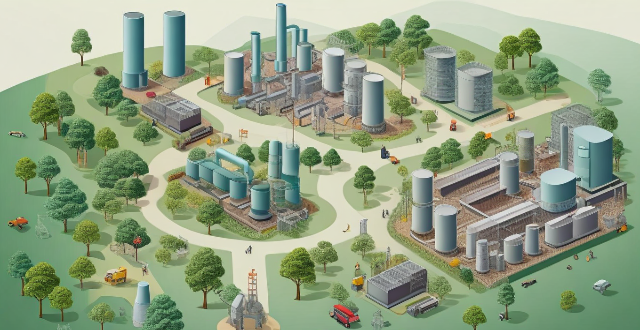
How can small and medium-sized enterprises adopt clean production technologies ?
In this article, we explore the crucial role of small and medium-sized enterprises (SMEs) in adopting clean production technologies to mitigate environmental impacts while maintaining profitability. Clean production technologies include energy-efficient machinery, low-emission processes, recycling, water conservation techniques, and more. SMEs face challenges such as lack of awareness, high initial costs, skill gaps, and market uncertainty. However, strategies like government incentives, collaboration with industry associations, education and training, incremental adoption, partnerships with research institutions, technology audits, and digital transformation can help overcome these challenges. Adopting clean production technologies offers benefits for SMEs, including cost savings, competitive advantage, regulatory compliance, and brand reputation enhancement. As society moves towards a more sustainable future, the role of SMEs in adopting clean production technologies will become increasingly vital.

What are some innovative technologies being used for waste reduction ?
Innovative technologies are being developed to address the critical issue of waste reduction, including anaerobic digestion, recycling and upcycling, composting, incineration with energy recovery, zero waste practices, IoT and smart waste management, circular economy models, and biodegradable and compostable materials. These solutions aim to minimize environmental impact and promote resource conservation.

What are the benefits of waste reduction for the environment ?
Reducing waste is crucial for preserving our planet's health and ensuring a sustainable future. Here are some key benefits of waste reduction for the environment: * Reduced Landfill Space * Conservation of Natural Resources * Decreased Pollution * Climate Change Mitigation * Preservation of Wildlife Habitats * Economic Benefits

Why is it important to recycle electronic waste ?
Recycling electronic waste is crucial for environmental sustainability, public health, and economic benefits. It conserves natural resources, reduces landfill space, prevents toxicity, creates jobs, saves costs, promotes green technology, reduces exposure to toxic substances, protects biodiversity, extends product lifespan, and raises awareness. Understanding the importance of e-waste recycling can lead to informed decisions that contribute to a circular economy and a healthier planet.
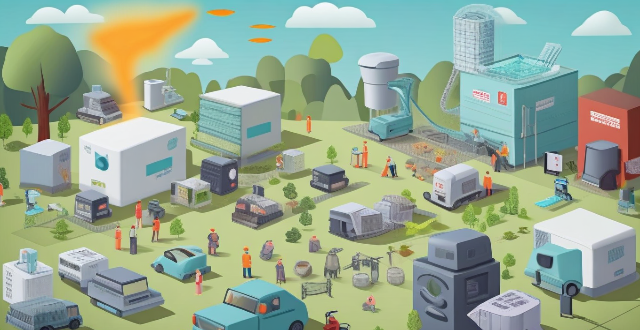
How does proper waste management aid in saving energy and reducing pollution ?
Proper waste management is crucial for conserving energy and reducing pollution. It involves strategies like composting organic waste to reduce methane emissions, enhancing recycling to save energy in manufacturing new products, preventing environmental pollution through proper disposal, promoting sustainable practices like reduce, reuse, and recycle, and supporting the circular economy model. By adopting these measures, we can move towards a more sustainable future that conserves resources and protects our planet.

How does waste reduction contribute to a circular economy ?
The transition to a circular economy is significantly influenced by waste reduction, which encompasses various strategies like reusing products, recycling materials, and promoting resource efficiency. These practices help in conserving natural resources, reducing pollution, creating economic opportunities, and fostering sustainable consumer behavior. Governments and businesses play a crucial role in driving waste reduction through policy initiatives, technological innovations, and sustainable supply chain management. Community engagement and public awareness further support this shift towards a more sustainable economic model.

What are some innovative ways to recycle electronic waste ?
Innovative Ways to Recycle Electronic Waste Electronic waste, or e-waste, is a significant environmental concern that can be addressed through various innovative recycling methods. These include repurposing old devices, upcycling components, recycling plastics, energy recovery, designing for disassembly, regulation and education, and research and development. By adopting these strategies, we can reduce the amount of e-waste in landfills and lessen its environmental impact.

Can circular economy policies help reduce waste and pollution ?
Circular economy policies can significantly reduce waste and pollution by promoting reuse, recycling, and cleaner production methods. These policies incentivize businesses to design products that are easier to maintain and recycle, support sustainable business models like leasing and Product as a Service (PaaS), and encourage consumers to make environmentally friendly choices. Through such measures, the need for new raw materials decreases, energy consumption is reduced, and waste is diverted from landfills, all of which contribute to lower emissions and a cleaner environment.
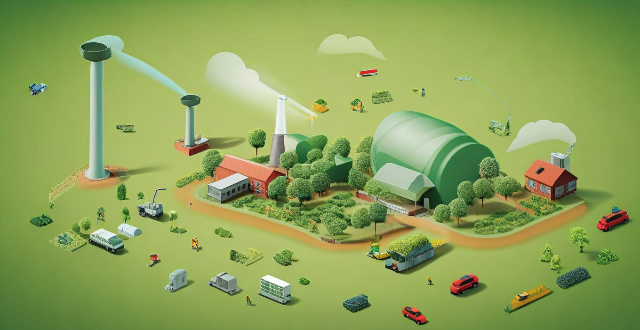
How does clean energy investment impact the environment ?
Clean energy investment positively affects the environment in various ways, including reducing greenhouse gas emissions, conserving natural resources, improving air quality, promoting sustainable practices, and enhancing long-term energy security. These efforts help mitigate climate change, protect ecosystems, reduce pollutants, encourage innovation and job creation, and stabilize energy prices. As environmental challenges persist, prioritizing clean energy investment is crucial for the planet's health and future generations.

How do I clean my AirPods ?
Apple's AirPods require regular cleaning to maintain performance and hygiene. Here's a guide on how to clean your AirPods, including steps to turn them off, remove ear tips, clean the ear tips and exterior, dry, reattach ear tips, test, and additional tips.

What role does waste reduction play in sustainable development ?
The article discusses the importance of waste reduction in sustainable development. It highlights the environmental, economic, and social benefits of waste reduction, including conservation of natural resources, protection of ecosystems, climate change mitigation, cost savings, job creation, innovation and efficiency, public health, education and awareness, and community engagement. The article emphasizes that waste reduction is an essential component of sustainable development and encourages individuals, businesses, and governments to take action to reduce waste.

How do cultural factors influence waste reduction practices ?
The text provides an overview of how cultural factors influence waste reduction practices, highlighting the role of cultural attitudes, social norms, education, religious beliefs, economic conditions, and technological advancements in shaping waste management behaviors. It emphasizes that respect for resources, consumerism vs. conservatism, composting traditions, public awareness campaigns, community cleanliness standards, taboos around waste, environmental education, family values, role models, stewardship principles, reincarnation beliefs, interconnectedness philosophies, affordability of disposable products, recycling costs, government incentives, access to technology, digital awareness campaigns, and innovative product design are all aspects of culture that can significantly impact waste reduction efforts. By understanding these cultural dynamics, more effective strategies for sustainable living can be developed globally.
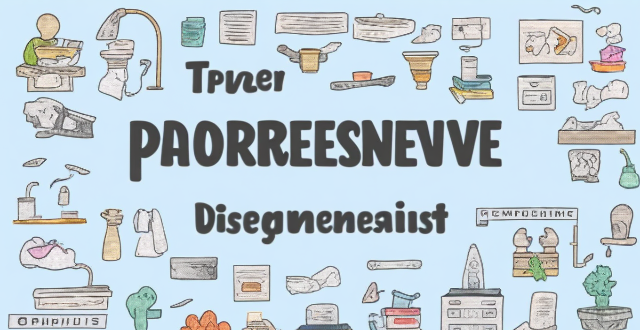
How do I properly dispose of electronic waste ?
The text provides a comprehensive guide to the proper disposal of electronic waste (e-waste), which is crucial for environmental preservation and public health. The guide explains what e-waste is, why it's a problem, and outlines steps for responsible e-waste management, including reducing consumption, reusing devices, recycling them through various methods, disposing of hazardous materials responsibly, and raising awareness about the issue. By following these steps—reduce, reuse, recycle, responsibly dispose, and raise awareness—individuals and communities can significantly mitigate the negative impacts of e-waste and make a difference.

How does a circular economy contribute to waste reduction and resource conservation ?
The circular economy model promotes waste reduction and resource conservation by advocating for the reuse and recycling of materials, reducing raw material extraction, extending product lifecycles, treating waste as a resource, encouraging the sharing economy and digital services, improving resource efficiency, promoting biodegradable and renewable resources, raising consumer awareness, and supporting regulatory policies. This approach challenges traditional linear economic models and offers a sustainable solution to address environmental issues related to waste and resource depletion.
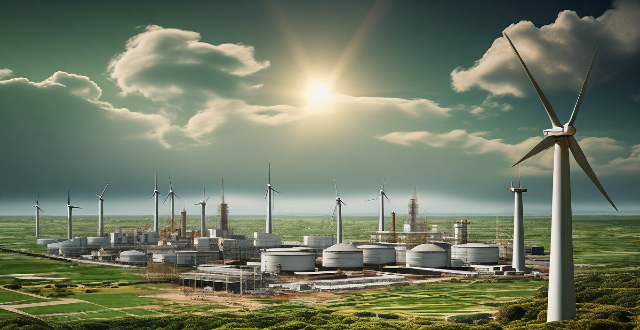
What are the risks associated with investing in clean energy ?
Investing in clean energy is beneficial for the environment and potentially profitable in the long term, but it comes with its own set of risks. Some of the key risks associated with investing in clean energy include technology risk, market risk, operational risk, regulatory risk, financial risk, environmental risk, and social and political risk. It's essential to be aware of these risks and manage them effectively to ensure successful investments in this sector.

How can businesses implement waste reduction practices in their operations ?
This topic discusses the importance of waste reduction in businesses and provides strategies for implementing sustainable practices. It emphasizes the benefits of conducting a waste audit, adopting eco-friendly packaging, optimizing manufacturing processes, promoting reuse and repair, training employees in waste reduction, and partnering with green suppliers. The goal is to contribute to a more sustainable future while also benefiting financially through cost savings and efficiency gains.
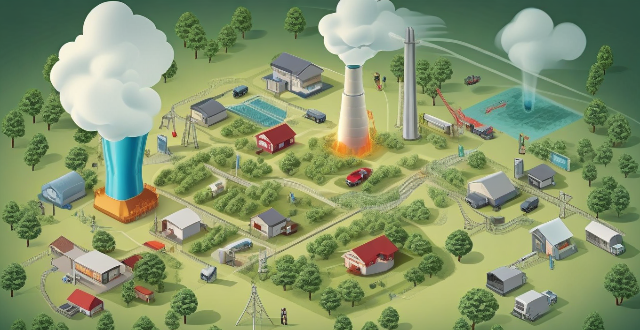
What is the relationship between waste reduction and energy conservation ?
The article discusses the relationship between waste reduction and energy conservation, highlighting their importance in promoting sustainable development. Waste reduction strategies such as recycling, composting, reusing materials, and reducing packaging conserve natural resources, reduce landfill space, and lower greenhouse gas emissions. Energy conservation measures like using energy-efficient appliances, improving insulation, and promoting renewable energy sources lead to lower energy costs, reduced greenhouse gas emissions, and promote sustainable development. The practices are interconnected, with recycling saving energy, composting reducing energy use, reducing packaging saving energy, energy-efficient appliances reducing waste, and promotion of renewable energy sources conserving energy and reducing waste.
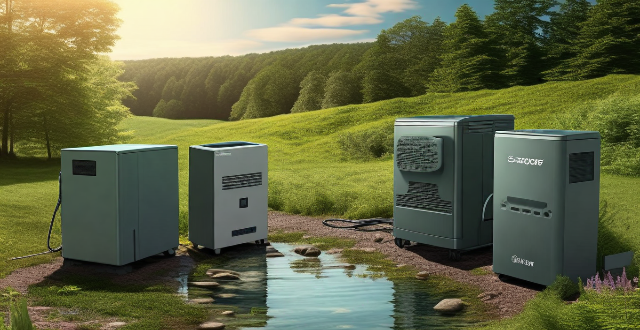
How does electronic waste affect the environment if not recycled ?
Electronic waste, or e-waste, refers to discarded electronic devices such as computers, smartphones, and televisions. Improper disposal of these items can have severe consequences for the environment, including the release of toxic chemicals into soil, water, and air. These chemicals can cause health problems for both humans and wildlife. Non-recycled e-waste also occupies valuable landfill space and contributes to soil contamination, water pollution, and air pollution. Proper recycling of electronic waste is essential to protect the environment and human health, conserve natural resources, and minimize the impact on landfills.

What are the potential returns on investment for clean energy projects ?
Investing in clean energy projects offers potential financial, environmental, and social returns. Factors such as capital appreciation, dividends, tax credits, carbon emission reductions, air quality improvements, job creation, and energy security contribute to the overall benefits of these investments. As the global transition towards a low-carbon economy progresses, investing in clean energy projects presents a wise and sustainable option for investors seeking both positive impact and financial gains.

How can I keep my kitchen clean and hygienic ?
Keeping a kitchen clean and hygienic is essential for maintaining good health and preventing the spread of bacteria and other harmful substances. Here are some tips on how to keep your kitchen clean and hygienic: Start with a clean slate, wash hands frequently, use separate cutting boards, clean as you go, store food properly, clean appliances regularly, disinfect regularly, and take out the trash. By following these simple tips, you can keep your kitchen clean and hygienic, which will help keep you and your family healthy.
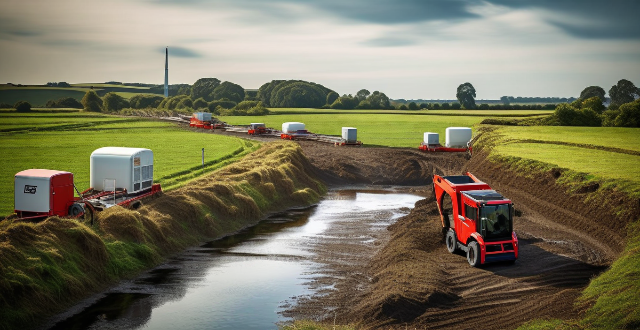
Are there any laws or regulations aimed at promoting waste reduction ?
Laws and regulations aimed at promoting waste reduction include extended producer responsibility (EPR), landfill taxes and bans, recycling targets, packaging regulations, local ordinances and programs such as curbside recycling and composting, waste reduction education campaigns, pay-as-you-throw programs, and international agreements like the Basel Convention. These measures encourage sustainable practices, reduce waste production, and promote recycling.

What are the most effective strategies for waste reduction in households ?
Effective Strategies for Waste Reduction in Households 1. Reduce: Buy only what you need, choose products with less packaging, and use reusable items. 2. Reuse: Donate or sell unwanted items and repurpose old items for new uses. 3. Recycle: Separate recyclable materials, know what can be recycled locally, and compost organic waste. 4. Avoid Single-Use Plastics: Bring your own reusable bags and use refillable containers. 5. Educate Yourself and Others: Learn about waste reduction and share tips with friends and family.